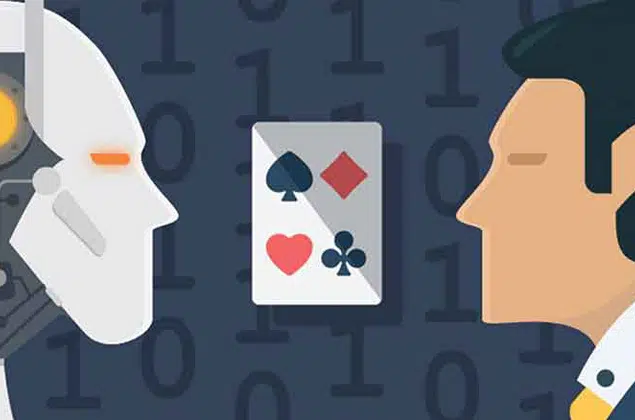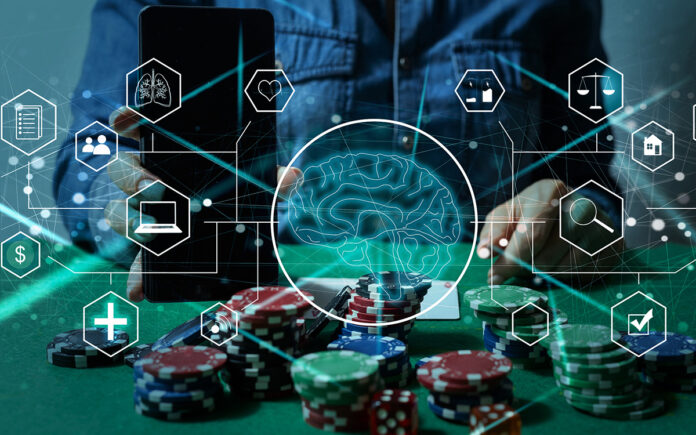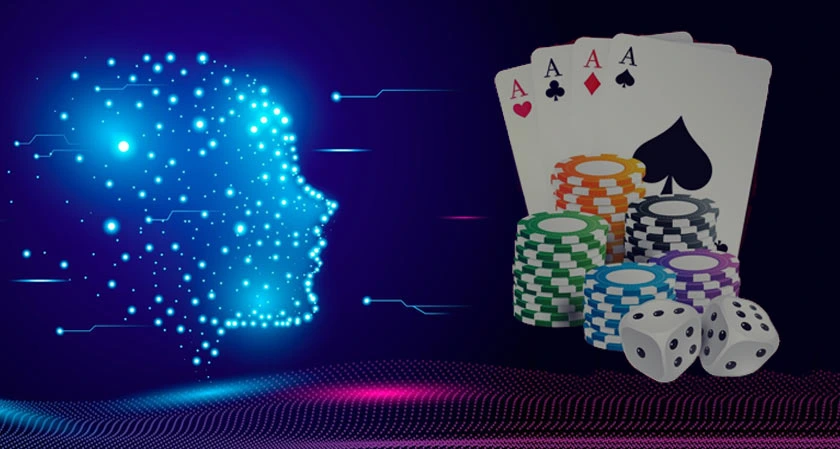The landscape of online poker has been transformed remarkably by the advent of AI-powered poker bots. Initially, these bots were simplistic programs with basic strategies, easily outplayed by experienced human players. However, over the years, the evolution has been rapid and profound. Advanced algorithms and machine learning models now enable these bots to learn from millions of game instances, improve their strategies continually, and make decisions based on complex statistical analysis. This evolution was highlighted by events like the defeat of professional players by systems such as Carnegie Mellon’s Libratus, signaling a new era where AI is not just a participant but a formidable contender in the realm of high-stakes poker.
AI’s Impact on Player Strategies

The introduction of artificial intelligence into online poker has undeniably exerted a significant impact on player strategies. Players are now compelled to adapt and evolve their methodologies to outsmart not just human opponents but also AI bots whose decision-making processes are devoid of emotional influence and based purely on probabilistic calculations. This shift has led to a more analytical and data-driven approach to the game, where understanding the intricacies of artificial intelligence strategies and incorporating elements of their unpredictability and pattern recognition into one’s playing style has become paramount. The result is a more nuanced and sophisticated playing environment, pushing human players to explore new dimensions of the game and refine their strategies to maintain a competitive edge.
Fairness and Ethical Concerns in AI-Powered Poker
While AI’s integration into poker games online offers numerous benefits, it also brings to the forefront serious fairness and ethical concerns. The primary worry is the potential for AI bots to dominate the game, thereby skewing the playing field and diminishing the essence of this game as a game of skill and psychological warfare between humans. Furthermore, the use of bots by some players in a concealed manner raises questions about integrity and transparency. Poker platforms and regulatory bodies face the challenging task of ensuring a fair playing field, necessitating the development of sophisticated detection mechanisms to identify and mitigate the unauthorized use of artificial intelligence bots, and fostering an environment where the spirit of fair competition is upheld.
The Advantages of AI in Online Poker
Despite the challenges and concerns, AI brings a plethora of advantages to online poker. For operators, AI can enhance the gaming experience by offering more challenging and varied opposition, thereby retaining player engagement and interest. AI can also be instrumental in detecting fraud and collusion, ensuring the integrity of games. From a player’s perspective, interacting and competing with artificial intelligence can serve as a powerful tool for learning and honing skills. The sophisticated strategies and decision-making processes of AI bots provide a rich source of insight and analysis, enabling players to elevate their game to new heights and prepare for a wide range of scenarios and opponent behaviors.
Challenges Faced by AI in Poker Development

Developing AI for this game is fraught with challenges, primarily due to the game’s intricate nature, involving incomplete information and the need to adapt strategies dynamically based on the behavior of opponents. Unlike games of perfect information like chess, poker requires an understanding of bluffing, bet sizing, and the ability to make probabilistic decisions with incomplete information. Designing AI that can navigate these complexities, adapt to varying playing styles, and make decisions in a manner akin to the most skilled human players involves significant computational resources and advanced algorithms. Additionally, ensuring that the use of artificial intelligence remains within the bounds of fairness and ethics adds another layer of complexity to its development and deployment in the online poker ecosystem.
AI vs. Human Players: Who Holds the Edge?

In the dynamic world of poker, the question of supremacy between artificial intelligence (AI) and human players remains a contentious debate. The complexity of this game, with its intricate blend of strategy, psychology, and random elements, presents a formidable challenge for AI. However, recent advancements have seen AI systems like Libratus and Pluribus not only mastering but also outperforming skilled human opponents in certain formats of the game. These artificial intelligence algorithms leverage massive computational power to analyze vast databases of poker hands, learning and adapting strategies that can be inscrutable and overwhelmingly effective. While humans still hold the edge in aspects like bluffing and detecting tells, the precision and relentless learning ability of AI pose a significant challenge, suggesting a future where the balance might tilt in favor of technology.
AI’s Role in Poker Training and Skill Development
The incorporation of artificial intelligence in this game is not just about pitting silicon against flesh and blood; it’s revolutionizing the way players train and develop their skills. AI-driven tools and software have become invaluable for players aiming to refine their strategies. These tools can simulate millions of poker situations, providing insights and data that were previously inaccessible or would take decades of human experience to accumulate. Players can now engage with AI bots to test their skills, receive real-time feedback, and adjust their strategies based on artificial intelligence analysis. This democratization of high-level training resources is leveling the playing field, allowing both novice and experienced players to harness the analytical power of AI to improve their decision-making and strategic planning.
AI-Enhanced Poker Platforms and Apps
The integration of artificial intelligence into poker platforms and apps is transforming the online poker landscape. These AI-enhanced platforms are not just about offering a digital space for the game; they’re about enriching the player’s experience with advanced features like predictive analytics, personalized learning tools, and real-time odds calculation. AI’s ability to analyze player behavior, predict moves, and offer tailored advice is enabling a more immersive and customized gaming experience. Moreover, the use of AI in ensuring fair play and detecting fraudulent activities is bolstering the integrity of online platforms, making them more attractive and reliable for players worldwide.
AI in Poker Tournaments: A Game-Changer

The infusion of AI in poker tournaments is redefining competitive play, turning these events into a crucible where human wit meets artificial intellect. AI’s presence in tournaments is multifaceted: from AI bots that serve as formidable opponents to AI systems that aid in tournament setup, player ranking, and even fraud detection. This convergence of artificial intelligence and human play is not only elevating the level of competition but is also pushing human players to evolve their strategies, adapt to unconventional AI play styles, and understand the game on a deeper level. However, this integration also raises questions about the essence of competition, the role of technology in sports, and the future shape of poker tournaments.
The Future of AI in Online Poker

Looking ahead, the future of AI in online poker seems poised for unprecedented growth and transformation. The continuous evolution of AI algorithms will likely lead to more sophisticated and nuanced poker bots, capable of challenging the top echelons of human players. The proliferation of artificial intelligence in online poker could also catalyze a shift in how the game is played, taught, and perceived, potentially leading to a new era where AI-driven analytics and strategy formulation become integral parts of the game. However, this future also beckons with questions about the nature of human versus machine competition, the ethical dimensions of artificial intelligence in gaming, and the preservation of poker as a game deeply rooted in human psychology and interaction.
Conclusion: Balancing Skill and Technology in Poker
As we stand at the intersection of skill and technology in the realm of poker, the journey forward is as much about embracing the advancements as it is about preserving the quintessence of the game. The integration of AI in this game is undeniably elevating the level of play and strategic depth, but it also underscores the need to maintain a balance. The future of poker lies not in choosing between human skill and artificial intelligence, but in harmonizing the two. It’s about leveraging AI to enhance human play, enrich the learning experience, and ensure fairness and integrity, while also cherishing the unpredictable, profoundly human elements that make poker not just a game of odds and strategies, but also a narrative of intuition, bluff, and psychological warfare.









